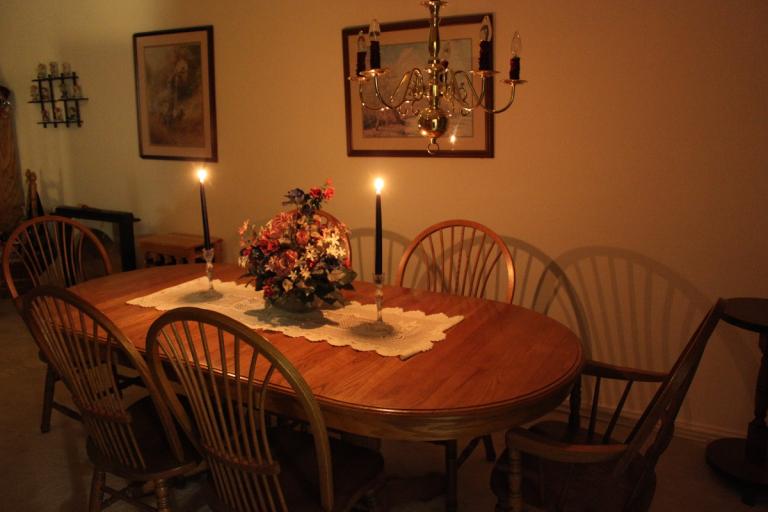From the comments on my last post, both here and (appropriately enough) on social media, I’m far from the only one who has dreams of a Druid college. This isn’t surprising – formal education is prominent in our lives. From the time we’re old enough to leave our mothers for a few hours we’re in school: kindergarten, elementary school, middle school, high school. Many of us go on to college or university and some of us go back again, and again. We’re told that education is the key to a good life and we want the best education for ourselves and our children.
In the world of fiction, who among us hasn’t dreamed of becoming a student at Hogwarts, or the priestess school of The Mists of Avalon, or the Shaolin Temple of Kung Fu, or Miss Robichaux’s Academy for Exceptional Young Ladies?
When we think about Pagan learning we tend to fall back on the models with which we’re familiar. Sometimes those models are helpful and sometimes they’re not. As we consider what institutions the Pagan movement needs – whether physical or virtual – it’s helpful to consider the differences between education, certification, and learning.
[Note – I’m an engineer, not an educator. I’m sure some of you can add some nuance to these layman’s definitions. To the extent that they further the discussion of the main topic, I welcome your contributions in the comments section.]
Education “is a form of learning in which the knowledge, skills, and habits of a group of people are transferred from one generation to the next through teaching, training, or research.” We have several models of education in the Pagan world. There’s a solitary Witch training her successor. There’s a coven introducing its Book of Shadows to a class of dedicants. There’s an OBOD Bard working through his lessons and reporting back to his tutor. There’s a seeker reading Scott Cunningham and trying spells on her own.
These models are different ways of transferring knowledge from a previous generation to the next generation. All of them can work well and all of them can fail miserably: it comes down to the quality of the instructor, the quality of the student, and the compatibility of the two.
Certification “refers to the confirmation of certain characteristics of an object, person, or organization. This confirmation is often, but not always, provided by some form of external review, education, assessment, or audit.” We want a college education but we also want a college degree – certification that says we’ve completed an approved course of study. Without that degree – that certification – you won’t even be considered for many jobs you might otherwise be well-suited for.
 There are certifications in the Pagan world. Traditional Wicca has its lineages. Cherry Hill Seminary offers master’s degrees including the Master of Divinity, the degree awarded by most Christian seminaries for their aspiring ministers. I have a certificate proclaiming I’m “a full member in the Druid grade of the most ancient Bardic and Druid order, the Order of Bards, Ovates and Druids.” If you want to know what I think of that certification, it’s framed and hanging on the same wall with my high school diploma, my bachelor’s degree in Industrial Engineering, and my MBA.
There are certifications in the Pagan world. Traditional Wicca has its lineages. Cherry Hill Seminary offers master’s degrees including the Master of Divinity, the degree awarded by most Christian seminaries for their aspiring ministers. I have a certificate proclaiming I’m “a full member in the Druid grade of the most ancient Bardic and Druid order, the Order of Bards, Ovates and Druids.” If you want to know what I think of that certification, it’s framed and hanging on the same wall with my high school diploma, my bachelor’s degree in Industrial Engineering, and my MBA.
Certifications have their value, as anyone knows who’s ever been confronted with someone who claims to be a high priestess but can’t magic her way out of a wet paper bag. And there is value in the learning that comes from doing the work that leads to a certification.
But if you’ve ever been turned down for a job solely because you didn’t have a degree (or because you didn’t have the right degree), or if you’ve ever hired someone with an impressive degree from an impressive university only to discover after the fact that he couldn’t do the job, you understand the limits of certifications.
For those who are attempting to advance the state of the art of modern Paganism, it’s not a question of certification. Neither is it a question of education. It’s a question of learning.
Learning “is acquiring new … knowledge, behaviors, skills, values, or preferences and may involve synthesizing different types of information … learning may be viewed as a process, rather than a collection of factual and procedural knowledge.” That’s an edited version of a Wikipedia definition, but it emphasizes the point I’m trying to make here. Learning is the process of acquiring new knowledge.
Want to learn to lead good rituals? You can read these posts on what to do, what not to do, what to do differently in large groups and how to add mystery to them. That’s education. Want a more in-depth education? Go read Isaac Bonewits’ Neopagan Rites. Go participate in a dozen rituals by a half dozen different groups. Lead a dozen of your own. You’ll learn. If your effort to do ritual matches your effort to learn about ritual, you’ll get better.
Eventually, though, you’re going to encounter diminishing returns working on your own. Your rituals will be very good, but could they be better still? Could they be more powerful, more meaningful, more worshipful, more magical?
Now imagine inviting five of the best ritualists in the modern Pagan world over for dinner. You discuss ritual theory over soup, logistics and presentation over salad, the symbolism of your tradition over the main course, and your relationship with your gods over dessert. By the time you’re pouring after dinner drinks, somebody’s got a script and a red pen, somebody else is digging in their bag for a book, two people are clearing the furniture out of your living room and the last one is raiding your candle stash. Who wants to cast the circle?
You think after that dinner your rituals are going to take a step up?
You think the other ritualists would learn something too? Think they might go home and tell their friends about it? Maybe write a blog post about it? Maybe a book?
This is the purpose of the Druid college. Not to provide structured education. Not to provide certifications. But to bring knowledgeable and experienced Pagan practitioners together to share what they do best and find ways to do it even better.
Some of this goes on in conventions and gatherings. Some of it goes on in social media. Some of it goes on when four bloggers write on the same topic in close succession… at least when they’re advancing the state of Pagan beliefs and practices and not ranting about how some other Pagan offended them.
Brendan Myers’ new book The Earth, The Gods and The Soul is sitting in my to-be-read pile and at the rate I’m going it will be the Twelve Days of Solstice before I get to it. But Brendan gave a preview of it in Episode 120 of The Wigglian Way podcast. He pointed out three key survivals of ancient pagan philosophy through the Christian era, but then asked if such ideas could not just survive but flourish in the absence of Pagan institutions.
I think it’s safe to conclude … that the answer is ‘no’. To help an idea flourish in a big way, institutions are really, really helpful. [Without them] we do not normally find an ongoing exchange of argument, counter-argument, criticism, counter-criticism, improvement, adaptation, correcting of mistakes, and widening of application.
I want our ideas to flourish. I want our beliefs and practices to flourish. I want the magic that happens occasionally to happen regularly. I want to re-enchant the world.
I want to invite five ritualists over for dinner.


















